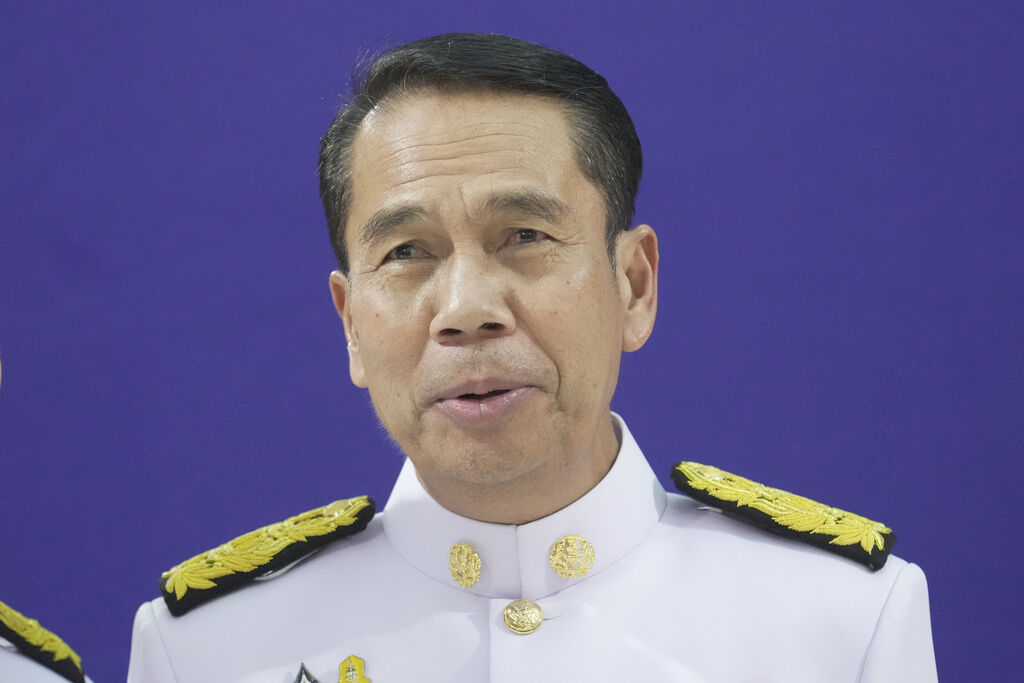Civilian defence minister to navigate Thai military reforms amid coalition challenges

The newly appointed Defence Minister, Sutin Klungsang, is in the spotlight as he is expected to navigate through various challenges within the military while maintaining stability within the Pheu Thai-led coalition government. As the first civilian to take the defence minister position without also holding the role of the prime minister, Sutin is expected to manage military reform, the southern unrest and the military’s relations with other regional countries.
The appointment of a civilian to oversee military affairs has been evaluated as an attempt by the Pheu Thai-led government’s de facto leader, the imprisoned former Prime Minister Thaksin Shinawatra, to mitigate the military’s potential threat to the government and to stave off any future coups. Thaksin’s administration was overthrown in a military coup on September 19, 2006, and his younger sister Yingluck Shinawatra’s government faced a similar fate on May 22, 2014.
Thaksin, sceptical of the military due to his past experience, is said to be promoting civilian oversight of the armed forces and aiming to reduce the influence of the three brothers in arms, referring to former Prime Minister Prayut Chan-o-cha, Palang Pracharath Party (PPRP) leader and former Deputy Prime Minister Prawit Wongsuwon, and former Interior Minister Anupong Paojinda.
The new government is also expected to address peace restoration in the Deep South and appoint a replacement for the government’s negotiation head, General Wanlop Rugsanoh. Prime Minister Srettha Thavisin reportedly prefers a civilian to handle the peace process, a decision that would further underscore the government’s intent to limit the military’s influence.
However, Dr Prommin Lertsuridej, secretary-general of the prime minister, has dismissed any hidden agenda behind the appointment of a civilian as defence minister. He asserts that this is a common international practice and denies that it is a tactic to prevent future coups.
Moving forward, the government is expected to address whether it will amend the Ministry of Defence Organisation Act BE 2551 (2008) to abolish the committee responsible for appointing military generals, which could potentially allow the defence minister to appoint armed forces leaders.
Security expert, Panitan Wattanayagorn, has highlighted that the new defence minister will face a series of challenges, including decisions on downsizing the armed forces, ending military conscription, addressing the southern unrest, and managing the controversial submarine procurement signed with a Chinese concessionaire.
Panitan also notes that international and regional issues involving big power rivalries from the South China Sea to the Korean Peninsula are more complex to handle than domestic ones. The Defence Ministry is expected to support the Foreign Affairs Ministry’s efforts to end the Myanmar crisis and garner international recognition for Thailand.
Wanwichit Boonprong, a political science lecturer at Rangsit University, has indicated that there are benefits to appointing a defence minister who does not concurrently serve as the prime minister, as it can reduce perceived interference with military affairs. He also states that Sutin’s familiarity with government budget plans will aid in his understanding of the Defence Ministry’s budgeting and spending processes.
Among the challenges that Sutin is expected to tackle is the replacement of military conscription with voluntary recruitment. Additionally, the government’s policy statement includes plans to increase the commercial value of areas owned by military agencies to boost revenue and make the Defence Ministry and the armed forces financially self-reliant. Military-run hospitals are also expected to admit the public to increase their income, reported Bangkok Post.
Latest Thailand News
Follow The Thaiger on Google News:


























